Producer Boris Goldovsky
By Bruce Duffie
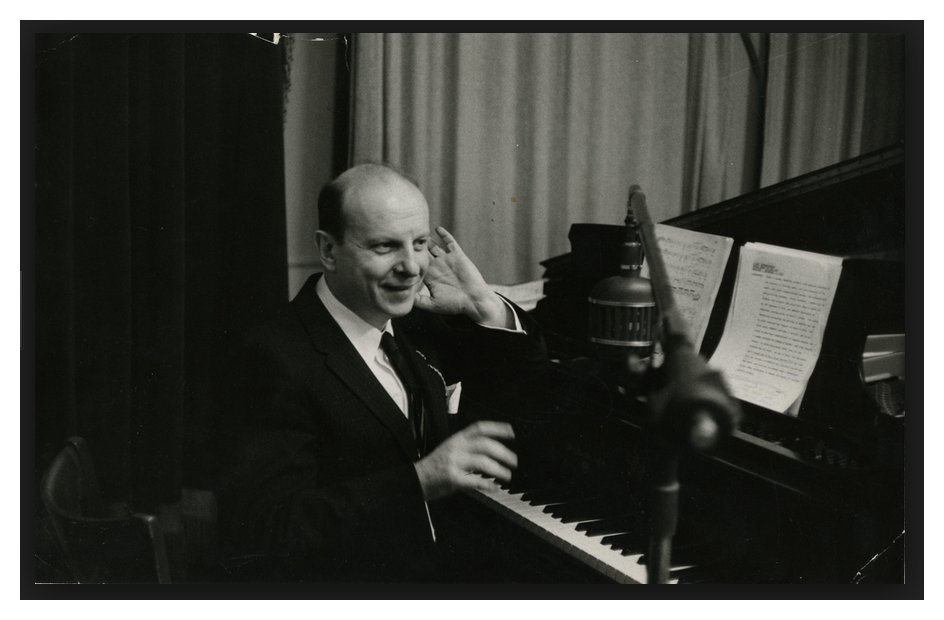

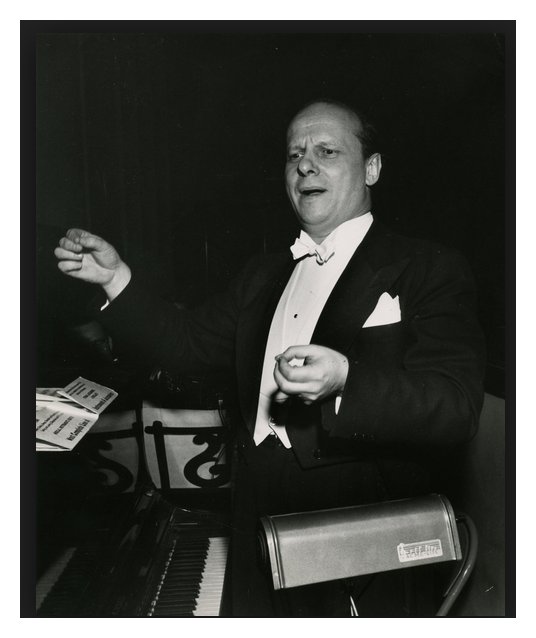 BG: It’s hard to say. Strauss was aware of the problem
and he spoke about it openly. If you’ve heard his Intermezzo, you would know that it’s
the only one of the later works for which he wrote his own text. When
he wrote his own text, he wanted it to be understood! Hofmansthal’s?
Never mind! [Laughs] So he wrote a preface to the vocal score
in which he said several extraordinary things. First of all, he said
the reason one can’t understand singers is that they sing full voice.
In this performance he wants them to all sing half-voice. And the orchestra
will be kept as soft as possible. Then he said something very interesting:
The Devil has put a curse on German composers, and the curse is called Counterpoint.
Counterpoint, Strauss said, destroys enunciation and diction. In the
orchestra, when things are played at the same time, even softly, it creates
a sort of smoke-screen that no words can come through. I think that
is the problem. Strauss was a “cursed” German composer who couldn’t
help himself and wrote everything in counterpoint. There are always
three or four lines of music going on.
BG: It’s hard to say. Strauss was aware of the problem
and he spoke about it openly. If you’ve heard his Intermezzo, you would know that it’s
the only one of the later works for which he wrote his own text. When
he wrote his own text, he wanted it to be understood! Hofmansthal’s?
Never mind! [Laughs] So he wrote a preface to the vocal score
in which he said several extraordinary things. First of all, he said
the reason one can’t understand singers is that they sing full voice.
In this performance he wants them to all sing half-voice. And the orchestra
will be kept as soft as possible. Then he said something very interesting:
The Devil has put a curse on German composers, and the curse is called Counterpoint.
Counterpoint, Strauss said, destroys enunciation and diction. In the
orchestra, when things are played at the same time, even softly, it creates
a sort of smoke-screen that no words can come through. I think that
is the problem. Strauss was a “cursed” German composer who couldn’t
help himself and wrote everything in counterpoint. There are always
three or four lines of music going on.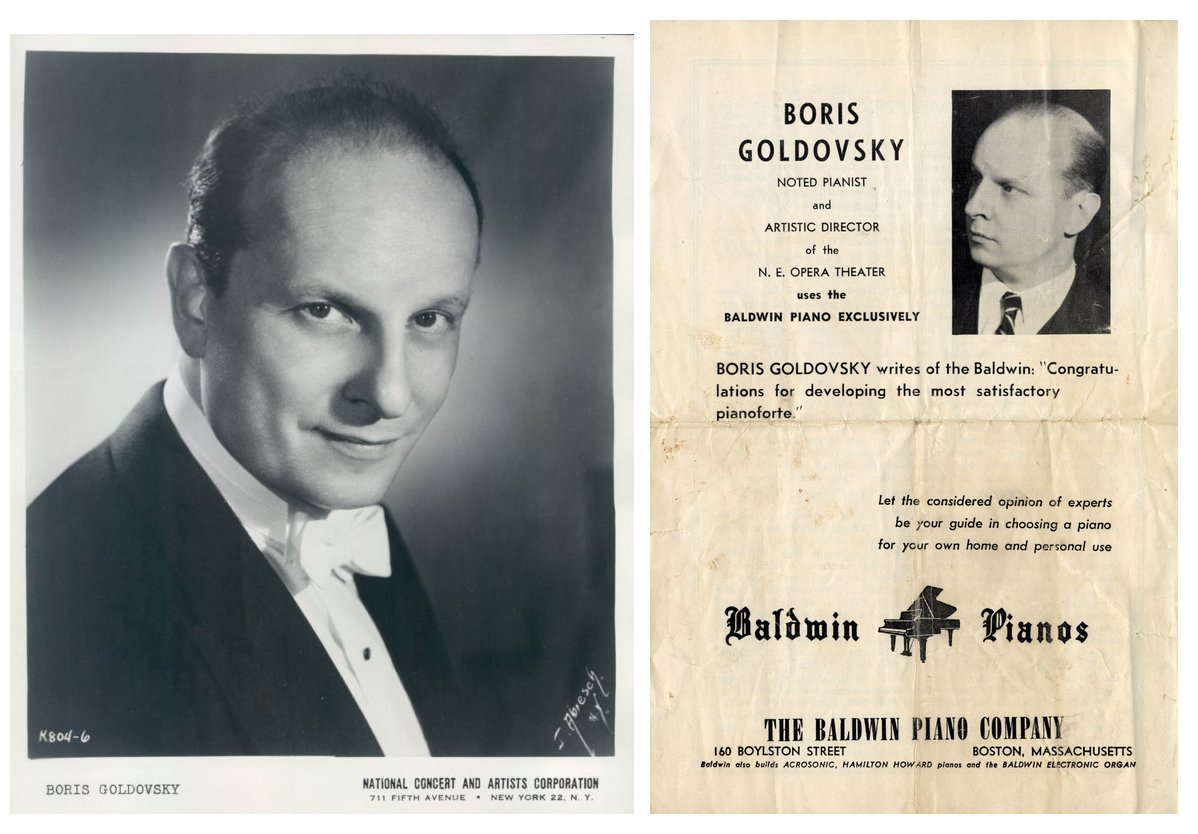
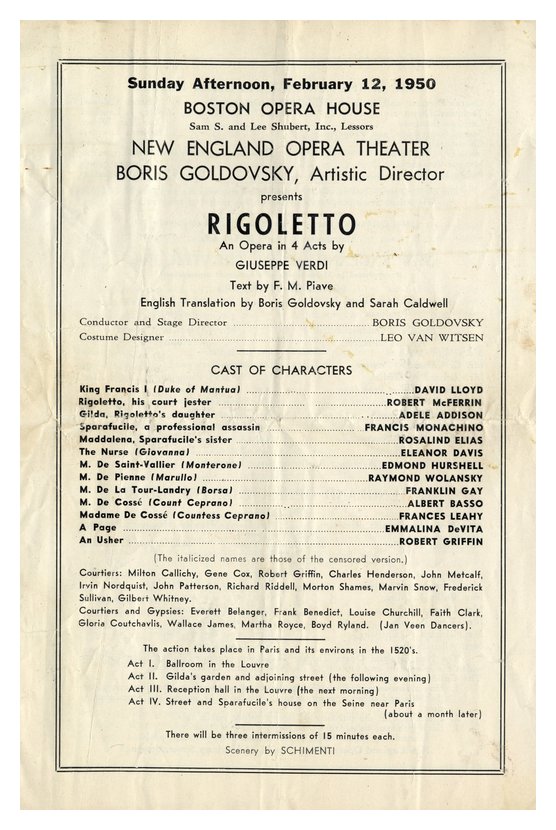 BG: There are more good ones, and what is so extraordinary now
is that they are better-trained and much more apt to learn rapidly.
I can go out for 5 days to a university and work with 20 or 25 young singers
who are very well prepared for me by other people. I can now accomplish
in three days what used to take three weeks even with very gifted people.
BG: There are more good ones, and what is so extraordinary now
is that they are better-trained and much more apt to learn rapidly.
I can go out for 5 days to a university and work with 20 or 25 young singers
who are very well prepared for me by other people. I can now accomplish
in three days what used to take three weeks even with very gifted people.|
Boris Goldovsky Died: February 16, 2001 - Brookline, Massachusetts, USA The Russian-American pianist, conductor, opera producer, lecturer, and broadcaster, Boris Goldovsky, is the son of Léa and nephew of Pierre Luboshutz. He studied piano with his uncle and took courses at the Moscow Conservatory from 1918 to 1921. In 1921 he made his debut as a pianist with the Berlin Philharmonic, and continued his studies with Artur Schnabel and Leonid Kreutzer at the Berlin Academy of Music from 1921 to 1923. After attending Ernö Dohnányi's master-class at the Budapest Academy of Music (graduated, 1930), he received training in conducting from Fritz Reiner at the Curtis Institute of Music in Philadelphia (1932). Goldovsky served as head of the opera departments at the New England Conservatory of Music in Boston from 1942 to 1954, the Berkshire Music Center at Tanglewood from 1946 to 1961, and the Curtis Institute of Music (from 1977). In 1946 he founded the New England Opera Theater in Boston, which became the Goldovsky Opera Institute in 1963. He also toured with his own opera company until 1984. He was a frequent commentator for the Metropolitan Opera radio broadcasts (from 1946) and also lectured extensively. He prepared English translations of various operas. In 1954 he received a Peabody Award for Outstanding Contribution to Radio Music. Writings Accents on Opera (1953) Bringing Opera to Life (1968) with A. Shoep, Bringing Soprano Arias to Life (1973) with T. Wolf: Manual of Operatic Touring (1975) with C. Cate: My Road to Opera (1979) Good Afternoon, Ladies and Gentlemen!: Intermission Scripts from tbe Met Broadcasts (1984) Adult Mozart: A Personal Perspective (4 volumes, 1991-1993) 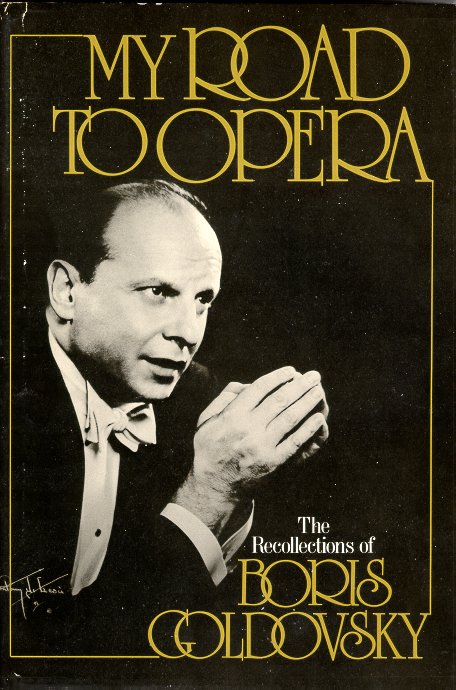
|
This interview was recorded on September 5, 1985. Portions
were used (along with recordings) on WNIB in 1993. This transcription
was made in 1988 and published in The Opera
Journal that June. It was slightly re-edited and posted on this
website in September, 2008. More photos and links were added in 2015.
To see a full list (with links) of interviews which have been transcribed and posted on this website, click here. To read my thoughts on editing these interviews for print, as well as a few other interesting observations, click here.
Award - winning broadcaster Bruce Duffie was with WNIB, Classical 97 in Chicago from 1975 until its final moment as a classical station in February of 2001. His interviews have also appeared in various magazines and journals since 1980, and he now continues his broadcast series on WNUR-FM, as well as on Contemporary Classical Internet Radio.
You are invited to visit his website for more information about his work, including selected transcripts of other interviews, plus a full list of his guests. He would also like to call your attention to the photos and information about his grandfather, who was a pioneer in the automotive field more than a century ago. You may also send him E-Mail with comments, questions and suggestions.